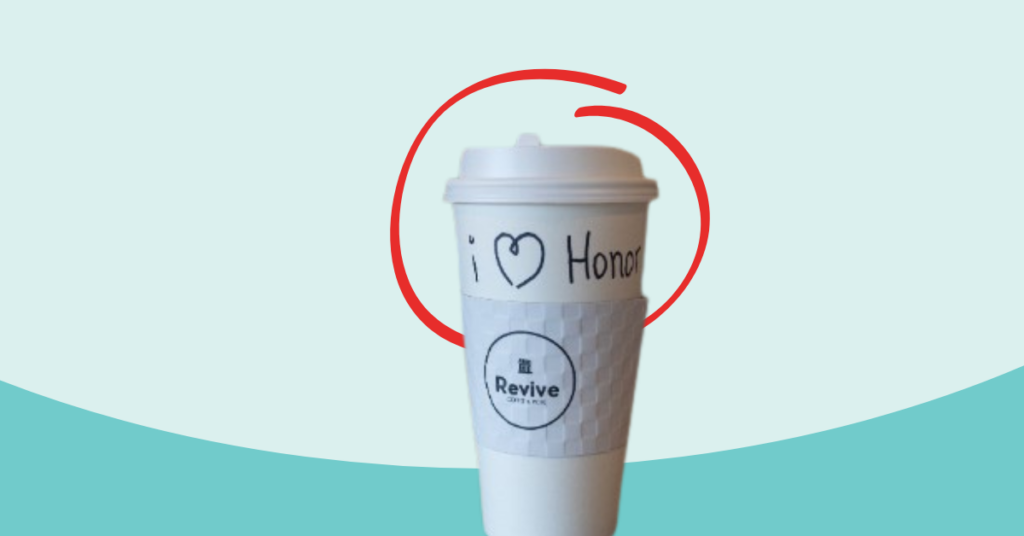Written by Matthew Vande Bunte For Honor Credit Union on November 22, 2024
In many communities, you can find a credit union right across the street from a bank. And at either one you can get easy, convenient access to a full selection of financial products and services including federally-insured checking and savings accounts as well as home, auto and business loans.
So, why does it matter which one you choose?
Well, here are four key differences between a credit union and a bank and what that means for you and your money:
Type of Ownership
Traditional banks provide financial services to customers and try to do so in a way that maximizes profits for shareholders. A credit union, on the other hand, is a financial cooperative made up of members, not customers.
While a bank’s profits get distributed to shareholders, a credit union returns profits to members in the form of better rates and lower fees.
“Our members are our owners. That’s who we’re in business for,” said Liz Amundson, director of compliance and audit at Honor Credit Union, which has 28 member center locations in southwest Michigan and the Upper Peninsula.
“Credit unions are run by the people in the community, and the foundation of a credit union is people helping people in their community.”

Interest Rates
As not-for-profit institutions, credit unions often give members better rates on financial products and services than a traditional bank.
For example, Honor Credit Union currently pays members 5.15% APY on its free Benefits Checking accounts. And when borrowing money, you can get low rates on home mortgages and auto loans, too.
“We are able to take that money that would normally be paid to investors and reinvest it in the members in the form of lower rates on loans or higher rates for dividends,” Amundson said.
Personal Service
Because a credit union is community based and not owned by a corporate entity on Wall Street, customer service is often more personal. For example, Honor Credit Union is headquartered right here in Michigan in Berrien Springs and has a presence in communities around the state.
Members can always pick up the phone or walk into any of the 28 full-service member center locations and talk to a real person.
“Once people join a credit union they don’t go back to a bank,” Amundson said. “They get better service at a credit union because that’s who we’re working for – the people who walk in that door.”
Community Involvement
With local roots, it’s only natural that credit unions are very involved in supporting the communities where their members live. In 2023, Honor Credit Union donated more than $734,000 to benefit hundreds of community organizations such as the local United Way, YMCA and Habitat for Humanity. Honor also awarded $28,000 in scholarship funds to local high school seniors and $15,000 in awards to local teachers.
Plus, more than 450 Honor team members recently volunteered to clean Michigan beaches, make holiday cards for veterans and provide a variety of other services in support of local organizations on CU Kind Day in October.
“We aren’t forced by regulation to give back to our communities (like banks are). We do this freely,” Amundson said. “We are community based and we are invested in our communities.”
While credit unions and banks do have similarities, there are key differences as you can see. Now, find out what difference Honor Credit Union can make for you.
Whether you’re looking for a low mortgage rate on a home or you’d like to save for something special with free, high-yield Benefits Checking, talk to Honor Credit Union about the solutions they have to support your financial success. You also can look to Honor for car loans, home equity loans, credit cards and more including Connect Checking, which pays you 1% back on dining, gas and grocery purchases made with your debit card.
“We have products that really are tailored to the member,” Amundson said. “It gives our members the option to choose what works best for them.”
Equal Housing Opportunity. Insured by NCUA.
contact us
Our team is here to help, give us a call at 800.442.2800, or schedule an appointment with an expert to talk about your options today.
Community Impact
$11,763,087
Total Interest & Incentives Paid to Members in 2023
$734,293
Donated in Support of 669 Organizations in 2023
$235,600
Homeownership Grant Funds Awarded to Homebuyers in 2023
94,620
Pounds of Paper Recycled During Free Shred Day Events in 2023
More To Explore

What’s a Balloon Mortgage
Balloon mortgages offer low rates in today’s real estate market. Read what a balloon mortgage is, how it works, and

Your Guide To Short-Term Home Mortgage Loans
The most common term for a home loan is 30 years, but a short-term mortgage might be worth looking into

Should You Build Or Buy a House? Consider These Things
We’ve outlined the essential pros and cons to consider before purchasing, or building your new home so you can decide

5 Questions About Home Equity Answered
What’s the difference between a home equity loan and line of credit? Honor Credit Union has answers to common home



